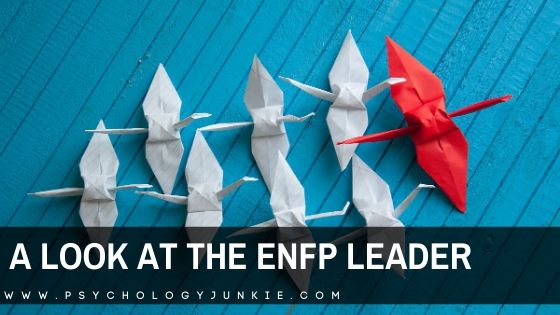The Unhealthy ESFP Personality Type
Are you worried that you—or someone you know—might be going through an unhealthy phase as an ESFP? First, take a deep breath. It’s important to remember that nobody operates at their best 100% of the time. The fact that you’re reading this shows that you care about personal growth, which is the first step toward becoming your healthiest, most authentic self.
I’ve been an MBTI® practitioner for nine years now and I have unhealthy moments of my life. We all do. Even if we know about them, we can’t possibly operate at our full potential every second of the day.

As an ESFP, you’re known for your zest for live, adventurous personality, and interpersonal awareness. You’re a master of living in the moment and adapting to life’s twists and turns with a smile. You bring energy, optimism, and fun wherever you go. But like all personality types, even ESFPs can experience periods of imbalance or unhealthy behavior—times when their strengths become overused or warped, and their potential feels stifled.
This article is here to help you understand what it looks like to be a healthy ESFP, how cognitive functions influence your behavior, and what happens when these functions become unbalanced. By the end, you’ll have a clearer picture of how to cope with challenges, embrace your strengths, and live with intention.
Not sure what your personality type is? Take our in-depth personality questionnaire here. Or you can take the official MBTI® here.
The Healthy ESFP
I absolutely adore being around healthy ESFPs. In fact, my closest friend is an ESFP at the moment. When you’re around a mature, balanced ESFP, they just radiate positivity and fun. They create experiences you’ll remember forever, experiences that make you think “This is what being alive really is about!” At their best, ESFPs:
- Embrace the present moment: They have an unmatched ability to find beauty and joy in life’s simple pleasures.
- Adapt effortlessly: Change doesn’t scare them—they adjust to new circumstances with creativity and ease.
- Inspire and uplift others: ESFPs have a knack for making others feel special, seen, and appreciated.
- Value personal growth: They balance their spontaneous energy with thoughtful reflection, using experiences to grow and learn.
This balance comes from a well-developed relationship with their cognitive functions. Even ESFPs who aren’t aware of the cognitive functions can be healthy; they simply understand that they need to work on their weaknesses, while leaning into their strengths.

Cognitive Functions of the ESFP
Every personality type operates using a unique “stack” of cognitive functions. These functions influence how ESFPs perceive the world, make decisions, and interact with others. When balanced, these functions create the enthusiastic and adaptable personality ESFPs are known for. When imbalanced, they can lead to stress, impulsivity, or other unhealthy behaviors.
Here’s an overview of the ESFP’s cognitive function stack:
- Dominant Function: Extraverted Sensing (Se)
This is the ESFP’s superpower. Se focuses on the present moment, taking in all the details of the environment and responding quickly to opportunities. It’s what makes ESFPs adventurous, bold, and capable of creating exciting experiences.- Healthy Se: Heightened awareness, adaptability, and a zest for life.
- Unhealthy Se: Impulsivity, thrill-seeking, and reckless behavior.
- Auxiliary Function: Introverted Feeling (Fi)
Fi guides ESFPs in making decisions aligned with their deeply held values and personal beliefs. It helps them stay authentic and ask, “What really matters to me in a meaningful way?”- Healthy Fi: Genuine self-expression, compassion, and respect for others’ individuality.
- Unhealthy Fi: Self-centeredness, dismissiveness of others’ values, and emotional stubbornness.
- Tertiary Function: Extraverted Thinking (Te)
Te helps ESFPs organize their external environment, set goals, and make things happen. While it’s less developed than Se and Fi, it supports their ability to follow through on plans.- Healthy Te: Productivity, efficiency, and a practical approach to challenges.
- Unhealthy Te: Domineering behavior, rigidity, or an obsession with control.
- Inferior Function: Introverted Intuition (Ni)
Ni is the ESFP’s least-developed primary function, focusing on long-term patterns, abstract ideas, and deeper meanings. While it’s not a natural strength, developing Ni can help ESFPs think beyond the here and now.- Healthy Ni: Insight into long-term consequences and deeper meanings. A hunger for depth over surface-details.
- Unhealthy Ni: Paranoia, overthinking, or fear of the unknown.
You might also enjoy: 24 Signs That You’re an ESFP, the Champion Personality Type
What Happens When ESFPs Become Unhealthy?
When stress, fear, or lack of growth takes over, ESFPs can fall into unhealthy patterns:
1. Over-Reliance on Extraverted Sensing (Se)
Extraverted Sensing is the ESFP’s dominant function, allowing them to live in the moment, soak up life’s pleasures, and act quickly. But what happens when ESFPs lean too far into Se and ignore or repress their other functions? Well, things get a little out of control. Here’s what you might see:
- Thrill-Seeking and Recklessness: Constantly chasing the next rush, unhealthy ESFPs might engage in risky behaviors like overspending, bingeing, or putting themselves in danger to feel alive. I once knew an ESFP who flew to Las Vegas on a whim, putting their marriage and family situation in jeopardy because it showed a lack of concern for their partner’s financial situation or emotional needs.
- Creating Drama for Excitement: When life feels too quiet, they may dramatize minor issues or stir up crises to inject energy into their day.
- Overindulgence: Whether it’s food, drink, or activities, they might overdo it in their quest for sensory satisfaction, leading to unhealthy habits.
Example: Instead of enjoying a calm weekend, an unhealthy ESFP might impulsively organize a last-minute road trip, maxing out their credit card and ignoring responsibilities back home.
2. Neglecting Introverted Feeling (Fi)
Some ESFPs lean so far into their extroverted side that they lose touch with their Introverted Feeling side. When this happens, it can lead to:
- Shallow Decision-Making: Prioritizing surface-level enjoyment over deeper fulfillment or relationships.
- Tactlessness: They might be loud and domineering, overwhelming others without taking their feelings into consideration.
- Avoiding Introspection: Fear of looking inward can make them reluctant to confront their emotions or ask if their choices align with their core values.
Example: An unhealthy ESFP may push a friend’s feelings aside during an argument, focusing only on how the situation affects them without considering the other person’s perspective.
3. The “Over-Extroverted” ESFP
When life feels overwhelming or unbalanced, ESFPs may amplify their extroverted tendencies to an unhealthy degree:
- Dominating Conversations: Talking over others, interrupting, or being excessively loud to keep the spotlight on themselves.
- Ignoring Boundaries: They might become relentless in persuading others to go along with their ideas or plans, disregarding objections or feelings.
- Avoiding Seriousness: By constantly joking or acting silly, they may sidestep serious discussions or situations that require emotional depth.
Example: During a tense meeting, an unhealthy ESFP might crack jokes and derail the conversation, making it hard for others to address the issue at hand.
4. The Se-Te Loop: Reckless and Domineering Behavior
When ESFPs over-rely on Extraverted Sensing (Se) and Extraverted Thinking (Te) while neglecting their Introverted Feeling (Fi), they can fall into a destructive loop:
- Recklessness: Acting impulsively without considering the long-term consequences of their actions.
- Over-Control: Becoming domineering and forceful in their efforts to manage situations, often bulldozing others in the process.
- Disconnection from Values: Losing sight of what’s personally meaningful, focusing instead on achieving external goals or short-term rewards.
Example: An ESFP in an Se-Te loop might aggressively pursue a business venture for the thrill and potential success, ignoring their own inner reservations or the ethical implications of their decisions.
5. Struggling with Inferior Introverted Intuition (Ni)
Introverted Intuition (Ni) is the ESFP’s weakest function, and when neglected or repressed, it can show up in unhealthy ways:
- Paranoia and Overthinking: They might misinterpret events, seeing patterns or threats that don’t exist.
- Fear of the Future: A lack of long-term planning can lead to anxiety about what lies ahead.
- Resistance to Abstract Ideas: They may dismiss anything that isn’t grounded in tangible, real-world experiences as impractical or pointless.
Example: When faced with an uncertain career decision, an unhealthy ESFP might spiral into fear, imagining unlikely worst-case scenarios instead of calmly assessing the situation.
6. Defensive Behaviors Under Stress
When feeling cornered, ESFPs may lash out or act in ways that undermine their relationships and goals:
- Throwing Tantrums: Reacting explosively to situations where they feel misunderstood or restricted.
- Escaping Responsibility: They might leave tasks unfinished or abandon commitments when they feel bored or trapped.
- Becoming Disruptive: In structured or rule-heavy environments, they may act out, seeking to undermine the situation or gain attention.
Example: An unhealthy ESFP stuck in a rigid workplace might intentionally miss deadlines or cause distractions to vent their frustration.
7. Unhealthy Introverted Feeling (Fi)
When Fi is imbalanced, ESFPs can become emotionally reactive and self-focused:
- Diminishing Others’ Feelings: Believing their emotions and values are more valid than those of others.
- Emotional Overload: Struggling to process their feelings healthily, leading to dramatic or exaggerated emotional responses.
- Martyr Complex: Feeling like nobody else understands them or shares their struggles, leading to isolation or resentment.
Example: During a disagreement, an unhealthy ESFP might accuse others of being insensitive while refusing to acknowledge their own role in the conflict.
You’ve Got This: Embracing Your Strengths
So now that we’ve talked about all the rough stuff that can happen when you’re feeling unhealthy, let’s move on to the good part. Thankfully, there are a LOT of good parts about being an ESFP. You all are literally one of my top three favorite personality types to be around!
First, take a moment to appreciate the rich, magnetic energy you bring to the world. Your ability to light up a room, adapt to change, and find joy in the moment is a rare and beautiful gift. You see life as an adventure and help others feel alive, loved, and appreciated. Even when times are tough, you have a way of making the moment feel limitless.
If you’re feeling stuck, overwhelmed, or out of balance, know this: every challenge is an opportunity to grow. You have the tools to work through stress, refine your strengths, and become the best version of yourself. Let’s dive into how you can tap into your incredible potential, navigate challenges, and thrive with confidence.
Dealing with Stress: Finding Your Center
Stress can hit anyone, but as an ESFP, your first reaction might be to distract yourself or dive headfirst into activity. Instead, try these approaches to regain balance and move forward with clarity:
- Pause and Ground Yourself
When life feels overwhelming, take a few moments to reconnect with your body and surroundings.- Try this: Close your eyes, take five deep breaths, and focus on the sensations around you—what you can hear, smell, or touch. This can help you center your mind and reduce anxiety.
- Identify the Root Cause
Ask yourself: “What’s really stressing me out?” Often, pinpointing the source of your stress can make it feel more manageable. It’s easy sometimes to jump into “action mode” and DO something to try to fix the problem. But sometimes we’re fixing a symptom and not the root issue. For example, the other day I was really stressed and I played a phone game instead of addressing the root cause of my stress (I was physically exhausted). I should have taken a nap for twenty minutes instead of playing Lumosity for twenty minutes.- Try this: Write down your stressors and brainstorm small, actionable steps to address them.
- Move Your Body
Physical activity can help you release pent-up energy and clear your mind.- Try this: Go for a walk, dance to your favorite music, or engage in a sport you love.
You might also enjoy: The ESFP and Grip Stress: What It Is and How to Cope
Developing Your Functions: Growing in Balance
Each of your cognitive functions plays a role in creating a well-rounded, resilient version of you. It’s natural to try to focus primarily on your dominant function. I know I’ve done this more times than I can count. But that’s the way to imbalance (and potentially stress). By giving each cognitive function intentional attention, you can find balance and unlock new strengths (think of it as leveling up).
- Extraverted Sensing (Se): Your Dominant Strength
This is your gift for living in the moment and noticing life’s beauty. However, balance is key.- Build Healthy Se:
- Spend time in nature, noticing the sights, sounds, and textures.
- Practice mindfulness to fully enjoy the present moment without needing constant excitement.
- Focus on meaningful experiences, like volunteering or creating memories with loved ones.
- Build Healthy Se:
- Introverted Feeling (Fi): Your Moral Compass
Fi helps you make sure that your actions line up with what you feel is personally important and meaningful to you. It’s less about “what’s fun now” and more about “what feels right to me in my conscience?”- Build Healthy Fi:
- Journal about what truly matters to you and why.
- Reflect on how your actions align (or don’t align) with your core values.
- Practice empathy by listening to others’ perspectives and considering their unique values and feelings.
- Build Healthy Fi:
- Extraverted Thinking (Te): Your Organizer
Te helps you set goals, create plans, and follow through with tasks. It’s also the part of you that asks, “Does this actually make sense in a logical way?”- Build Healthy Te:
- Use a planner or to-do list to track your progress on goals, no matter how small.
- Break larger tasks into manageable steps to avoid feeling overwhelmed.
- Celebrate each accomplishment, even the little ones!
- Build Healthy Te:
- Introverted Intuition (Ni): Your Visionary
Ni helps you contemplate the intangible things and recognize patterns in life. While it’s your weakest function, developing it can bring depth and foresight. And to be honest, you can really fall in love with this function over time. You do value it. It’s just a matter of giving it a little bit of space to breathe in your life so you can get to know it.- Build Healthy Ni:
- Spend a few minutes each day imagining where you want to be in five years. What steps could you take to get there?
- Explore books, podcasts, or conversations that challenge your usual way of thinking.
- Before jumping into action, ask yourself, “What are the likely effects of this action?
- Build Healthy Ni:
Encouragement for the Road Ahead
ESFP, the world is a better place with you in it. Your energy, optimism, and love of life inspire others in ways you might not even realize. Even in moments of imbalance, you have the ability to re-calibrate, grow, and move beyond limits to further growth.
As you move forward, remember to give yourself grace. Growth isn’t about being perfect—it’s about taking small, consistent steps towards the kind of person you want to be. One of my favorite quotes by James Clear (author of Atomic Habits) is “Every action you take is a vote for the type of person you wish to become. No single instance will transform your beliefs, but as the votes build up, so does the evidence of your new identity.” Every time you move towards growth and balance you’re casting a vote for the kind of person you want to be. So celebrate your wins, learn from your challenges, and keep shining your light.
Want to take the first step to a fuller understanding of yourself and the people you love? Discovering You: Unlocking the Power of Personality Type provides in-depth, empowering, and applicable knowledge about how your mind works (as well as all 16 types in the Myers-Briggs® system).
You can also take a deep dive into one specific personality with these three books:
The INFJ: Understanding the Mystic
The INFP: Understanding the Dreamer
The INTJ: Understanding the Strategist

Subscribe to Our Newsletter

Want to discover more about personality type? Get the inside scoop with Susan Storm on all things typological, along with special subscriber freebies, and discounts on new eBooks and courses! Join our newsletter today!











